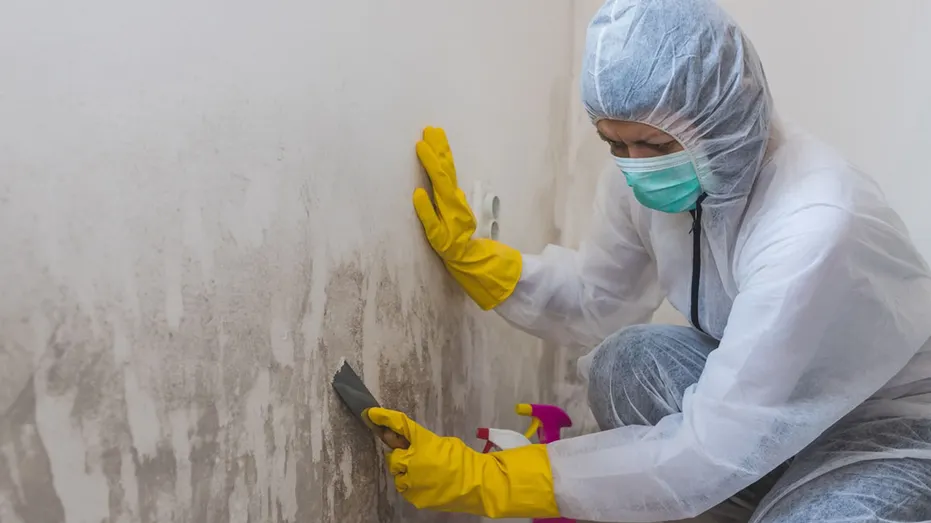Ohio Republican Sen. JD Vance and Minnesota Democratic Gov. Tim Walz met in an Oct. 1 vice presidential debate hosted by CBS News that was cordial and heavy on policy discussion — a striking change from the Sept. 10 debate between Vice President Kamala Harris and former President Donald Trump.
Vance and Walz acknowledged occasional agreement on policy points and respectfully addressed each other throughout the debate. But they were more pointed in their attacks on their rival’s running mate for challenges facing the country, including immigration and inflation.
The moderators, “CBS Evening News” anchor Norah O’Donnell and “Face the Nation” host Margaret Brennan, had said they planned to encourage candidates to fact-check each other, but sometimes clarified statements from the candidates.
After Vance made assertions about Springfield, Ohio, being overrun by “illegal immigrants,” Brennan pointed out that a large number of Haitian immigrants in Springfield, Ohio, are in the country legally. Vance objected and, eventually, CBS exercised the debate ground rule that allowed the network to cut off the candidates’ microphones.
Most points were not fact-checked in real time by the moderators. Vance resurfaced a recent health care theme — that as president, Donald Trump sought to save the Affordable Care Act — and acknowledged that he would support a national abortion ban.
Walz described how health care looked before the ACA compared with today. Vance offered details about Trump’s health care “concepts of a plan” — a reference to comments Trump made during the presidential debate that drew jeers and criticism for the former president, who for years said he had a plan to replace the ACA that never surfaced. Vance pointed to regulatory changes advanced during the Trump administration, used weedy phrases like “reinsurance regulations,” and floated the idea of allowing states “to experiment a little bit on how to cover both the chronically ill but the non-chronically ill.”
Walz responded with a quick quip: “Here’s where being an old guy gives you some history. I was there at the creation of the ACA.” He said that before then insurers had more power to kick people off their plans. Then he detailed Trump’s efforts to undo the ACA as well as why the law’s preexisting condition protections were important.
“What Sen. Vance just explained might be worse than a concept, because what he explained is pre-Obamacare,” Walz said.
The candidates sparred on numerous topics. Our PolitiFact partners fact-checked the debate here and on their live blog.
The health-related excerpts follow.
The Affordable Care Act:
Vance: “Donald Trump could have destroyed the [Affordable Care Act]. Instead, he worked in a bipartisan way to ensure that Americans had access to affordable care.”
False.
As president, Trump worked to undermine and repeal the Affordable Care Act. He cut millions of dollars in federal funding for ACA outreach and navigators who help people sign up for health coverage. He enabled the sale of short-term health plans that don’t comply with the ACA consumer protections and allowed them to be sold for longer durations, which siphoned people away from the health law’s marketplaces.
Trump’s administration also backed state Medicaid waivers that imposed first-ever work requirements, reducing enrollment. He also ended insurance company subsidies that helped offset costs for low-income enrollees. He backed an unsuccessful repeal of the landmark 2010 health law and he backed the demise of a penalty imposed for failing to purchase health insurance.
Affordable Care Act enrollment declined by more than 2 million people during Trump’s presidency, and the number of uninsured Americans rose by 2.3 million, including 726,000 children, from 2016 to 2019, the U.S. Census Bureau reported; that includes three years of Trump’s presidency. The number of insured Americans rose again during the Biden administration.
Abortion and Reproductive Health:
Vance: “As I read the Minnesota law that [Walz] signed into law … it says that a doctor who presides over an abortion where the baby survives, the doctor is under no obligation to provide lifesaving care to a baby who survives a botched late-term abortion.”
False.
Experts said cases in which a baby is born following an attempted abortion are rare. Less than 1% of abortions nationwide occur in the third trimester. And infanticide, the crime of killing a child within a year of its birth, is illegal in every state.
In May 2023, Walz, as Minnesota governor, signed legislation updating a state law for “infants who are born alive.” It said babies are “fully recognized” as human people and therefore protected under state law. The change did not alter regulations that already required doctors to provide patients with appropriate care.
Previously, state law said, “All reasonable measures consistent with good medical practice, including the compilation of appropriate medical records, shall be taken by the responsible medical personnel to preserve the life and health of the born alive infant.” The law was updated to instead say medical personnel must “care for the infant who is born alive.”
When there are fetal anomalies that make it likely the fetus will die before or soon after birth, some parents decide to terminate the pregnancy by inducing childbirth so that they can hold their dying baby, Democratic Minnesota state Sen. Erin Maye Quade told PolitiFact in September.
This update to the law means infants who are “born alive” receive appropriate medical care dependent on the pregnancy’s circumstances, Maye Quade said.
Vance supported a national abortion ban before becoming Trump’s running mate.
CBS News moderator Margaret Brennan told Vance, “You have supported a federal ban on abortion after 15 weeks. In fact, you said if someone can’t support legislation like that, quote, ‘you are making the United States the most barbaric pro-abortion regime anywhere in the entire world.’ My question is, why have you changed your position?”
Vance said that he “never supported a national ban” and, instead, previously supported setting “some minimum national standard.”
But in a January 2022 podcast interview, Vance said, “I certainly would like abortion to be illegal nationally.” In November, he told reporters that “we can’t give in to the idea that the federal Congress has no role in this matter.”
Since joining the Trump ticket, Vance has aligned his abortion rhetoric to match Trump’s and has said that abortion legislation should be left up to the states.
— Samantha Putterman of PolitiFact, on the live blog
A woman’s 2022 death in Georgia following the state passing its six-week abortion ban was deemed “preventable.”
Walz talked about the death of 28-year-old Amber Thurman, a Georgia woman who died after her care was delayed because of the state’s six-week abortion law. A judge called the law unconstitutional this week.
A Sept. 16 ProPublica report found that Thurman had taken abortion pills and encountered a rare complication. She sought care at Piedmont Henry Hospital in Atlanta to clear excess fetal tissue from her uterus, called a dilation and curettage, or D&C. The procedure is commonly used in abortions, and any doctor who violated Georgia’s law could be prosecuted and face up to a decade in prison.
Doctors waited 20 hours to finally operate, when Thurman’s organs were already failing, ProPublica reported. A panel of health experts tasked with examining pregnancy-related deaths to improve maternal health deemed Thurman’s death “preventable,” according to the report, and said the hospital’s delay in performing the procedure had a “large” impact.
— Samantha Putterman of PolitiFact, on the live blog
What Project 2025 Says About Some Forms of Contraception, Fertility Treatments
Walz said that Project 2025 would “make it more difficult, if not impossible, to get contraception and limit access, if not eliminate access, to fertility treatments.”
Mostly False. The Project 2025 document doesn’t call for restricting standard contraceptive methods, such as birth control pills, but it defines emergency contraceptives as “abortifacients” and says they should be eliminated from the Affordable Care Act’s covered preventive services. Emergency contraception, such as Plan B and ella, are not considered abortifacients, according to medical experts.
PolitiFact did not find any mention of in vitro fertilization throughout the document, or specific recommendations to curtail the practice in the U.S., but it contains language that supports legal rights for fetuses and embryos. Experts say this language can threaten family planning methods, including IVF and some forms of contraception.
— Samantha Putterman of PolitiFact, on the live blog
Walz: “Their Project 2025 is gonna have a registry of pregnancies.”
False.
Project 2025 recommends that states submit more detailed abortion reporting to the federal government. It calls for more information about how and when abortions took place, as well as other statistics for miscarriages and stillbirths.
The manual does not mention, nor call for, a new federal agency tasked with registering pregnant women.
Fentanyl and Opioids:
Vance: “Kamala Harris let in fentanyl into our communities at record levels.”
Mostly False.
Illicit fentanyl seizures have been rising for years and reached record highs under Biden’s administration. In fiscal year 2015, for example, U.S. Customs and Border Protection seized 70 pounds of fentanyl. As of August 2024, agents have seized more than 19,000 pounds of fentanyl in fiscal year 2024, which ended in September.
But these are fentanyl seizures — not the amount of the narcotic being “let” into the United States.
Vance made this claim while criticizing Harris’ immigration policies. But fentanyl enters the U.S. through the southern border mainly at official ports of entry. It’s mostly smuggled in by U.S. citizens, according to the U.S. Sentencing Commission. Most illicit fentanyl in the U.S. comes from Mexico made with chemicals from Chinese labs.
Drug policy experts have said that the illicit fentanyl crisis began years before Biden’s administration and that Biden’s border policies are not to blame for overdose deaths.
Experts have also said Congress plays a role in reducing illicit fentanyl. Congressional funding for more vehicle scanners would help law enforcement seize more of the fentanyl that comes into the U.S. Harris has called for increased enforcement against illicit fentanyl use.
Walz: “And the good news on this is, is the last 12 months saw the largest decrease in opioid deaths in our nation’s history.”
Mostly True.
Overdose deaths involving opioids decreased from an estimated 84,181 in 2022 to 81,083 in 2023, based on the most recent provisional data from the Centers for Disease Control and Prevention. This decrease, which took place in the second half of 2023, followed a 67% increase in opioid-related deaths between 2017 and 2023.
The U.S. had an estimated 107,543 drug overdose deaths in 2023 — a 3% decrease from the 111,029 deaths estimated in 2022. This is the first annual decrease in overall drug overdose deaths since 2018. Nevertheless, the opioid death toll remains much higher than just a few years ago, according to KFF.
More Health-Related Comments:
Vance Said ‘Hospitals Are Overwhelmed.’ Local Officials Disagree.
We asked health officials ahead of the debate what they thought about Vance’s claims about Springfield’s emergency rooms being overwhelmed.
“This claim is not accurate,” said Chris Cook, health commissioner for Springfield’s Clark County.
Comparison data from the Centers for Medicare & Medicaid Services tracks how many patients are “left without being seen” as part of its effort to characterize whether ERs are able to handle their patient loads. High percentages usually signal that the facility doesn’t have the staff or resources to provide timely and effective emergency care.
Cook said that the full-service hospital, Mercy Health Springfield Regional Medical Center, reports its emergency department is at or better than industry standard when it comes to this metric.
In July 2024, 3% of Mercy Health’s patients were counted in the “left-without-being-seen” category — the same level as both the state and national average for high-volume hospitals. In July 2019, Mercy Health tallied 2% of patients who “left without being seen.” That year, the state and national averages were 1% and 2%, respectively. Another CMS 2024 data point shows Mercy Health patients spent less time in the ER per visit on average — 152 minutes — compared with state and national figures: 183 minutes and 211 minutes, respectively. Even so, Springfield Regional Medical Center’s Jennifer Robinson noted that Mercy Health has seen high utilization of women’s health, emergency, and primary care services.
— Stephanie Armour, Holly Hacker, and Stephanie Stapleton of KFF Health News, on the live blog
Minnesota’s Paid Leave Takes Effect in 2026
Walz signed paid family leave into law in 2023 and it will take effect in 2026.
The law will provide employees up to 12 weeks of paid medical leave and up to 12 weeks of paid family leave, which includes bonding with a child, caring for a family member, supporting survivors of domestic violence or sexual assault, and supporting active-duty deployments. A maximum 20 weeks are available in a benefit year if someone takes both medical and family leave.
Minnesota used a projected budget surplus to jump-start the program; funding will then shift to a payroll tax split between employers and workers.
— Amy Sherman of PolitiFact, on the live blog
KFF Health News is a national newsroom that produces in-depth journalism about health issues and is one of the core operating programs at KFF—an independent source of health policy research, polling, and journalism. Learn more about KFF.
USE OUR CONTENT
This story can be republished for free (details).





